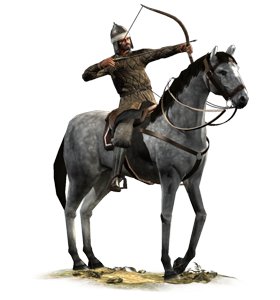Difference between revisions of "Zamindari Horsemen (ETW Unit)"
Tango12345 (talk | contribs) m (Removed category "Missile Cavalry" (using HotCat)) |
Tango12345 (talk | contribs) m (Quick-adding category "Empire Total War Units" (using HotCat)) |
||
| Line 31: | Line 31: | ||
*[[Image:Afghanistan.jpg|25px]] [[Afghanistan (ETW Faction) |Afghanistan]] | *[[Image:Afghanistan.jpg|25px]] [[Afghanistan (ETW Faction) |Afghanistan]] | ||
*[[Image:Khante_khiva.jpg|25px]] [[Khanate of Khiva (ETW Faction) |Khanate of Khiva]] | *[[Image:Khante_khiva.jpg|25px]] [[Khanate of Khiva (ETW Faction) |Khanate of Khiva]] | ||
| + | |||
| + | [[Category:Empire Total War Units]] | ||
Revision as of 13:20, 5 September 2011
These "feudal" troops are armed in traditional style and, while cheap, may not be as reliable as regular forces.
Overview
The zamindars, or landholders, recruit troops from among the peasantry farming the lands they manage. A life in the ranks is a little better than one toiling in the fields, and offers the chance of loot and excitement.
At first sight, the zamindar system has much in common with the medieval "feudal" dea, and this was how many Europeans saw the system. A zamindar would be given land to run as a tax farm, squeezing the peasants for all the revenue he could get. At the same time, the zamindari would have a place in a formal hierarchy, and were expected to contribute a contingent of troops to the army. This sounds like the feudal idea of providing men to an overlord, but it was based on financial, not fealty, principles. There were even landholders who were expected to supply elephant troops rather than cavalry and footmen. When the European trading companies took over tax collection, they often left the local landholders to collect taxes, after weeding out the most glaringly corrupt.
